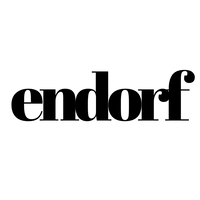Consider two types of recovery, both incredibly dynamic and perpetually in flux with one another.
And take muscle tissue as an initial example.
The first type of recovery is the immediate, short-term form, the after-workout cellular repair of microscopic tears in muscle tissue. This recovery makes it possible for us to quickly regenerate tissue so that we may engage in physical activity as soon as our bodies deem it physically possible.
The second type is the long-framed style of ongoing recovery - the replication of cells to form new muscle protein strands that increase the size/strength of muscles. This form of healing allows us to keep up with the future demands we place on our physical selves.
Expand this concept beyond muscle tissue - lungs and vital capacity, bones and osseous talent, brain and cognitive resilience. Our bodies (and minds) are encoded with an impressive level of durability, designed so that we can not only take a beating and recover from it but also adapt to new normals as efficiently as possible.
Herein lies a point that tends to get lost amidst all the noise of self-optimization: our ability to adapt to new standards (new standards that we set for ourselves) is much more infinite in scope than we'd otherwise think.
Consider neuroregeneration. Studies have shown that certain compounds, like Tyrosine, not only improve brain function on a short-term basis but also balance neurotransmitters crucial to healthy long-term brain function.
Numerous adaptogens, like Cordyceps, optimize neurological function on short and long-term levels and are increasingly included in various therapy modalities.
(i.e., concussive symptomology) or proactive (i.e., staving away cognitive decline).
Our physiology is more short-term focused than we tend to be with our approaches (say, caffeine-exclusive boosters). It has our long-term wellness in mind and operates on many temporal levels of regeneration, immediate and adaptive.
Our minds, likewise, work the same way. They adapt to the new standards we place upon ourselves and benefit from a proactive infusion of support, whether those supports are tangible (like supplements) or intangible (say, increased self-awareness).
Endorf seeks to not only shed more light on the cohesion between our inner processes and the potential that we all have inherent within us but to support our journey toward the kind of optimization that we didn't even realize we could achieve.
